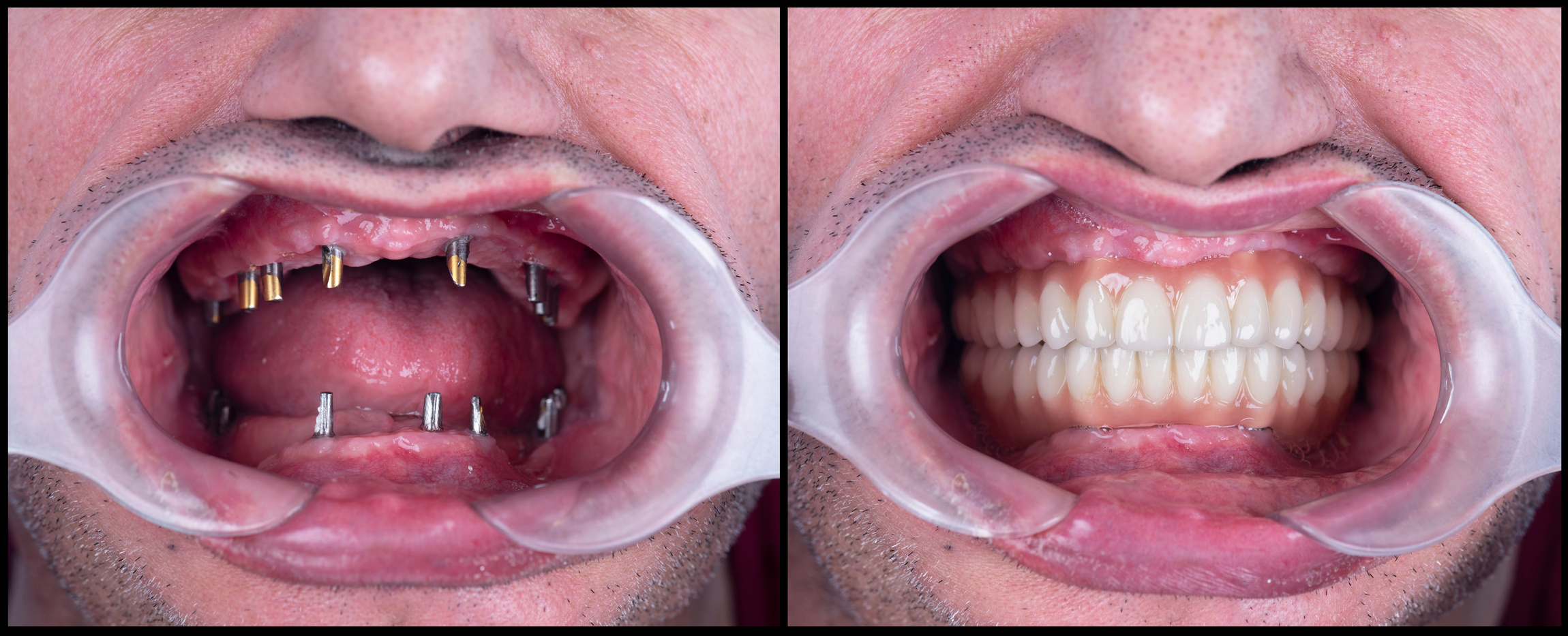The 30-Second Trick For Dental Sense
Table of ContentsDental Sense Things To Know Before You BuyThe Ultimate Guide To Dental SenseThe 30-Second Trick For Dental SenseDental Sense for Beginners
are clinical devices operatively implanted right into the jaw to restore a person's capability to eat or their appearance. They provide assistance for man-made (phony) teeth, such as crowns, bridges, or dentures. When a tooth is lost due to injury or illness, an individual can experience difficulties such as fast bone loss, defective speech, or changes to eating patterns that result in pain.Dental implant systems include an oral implant body and oral implant abutment and may additionally consist of a joint addiction screw. Dental veneers cost. The oral implant body is operatively placed in the jawbone in area of the tooth's root. The oral implant abutment is typically connected to the implant body by the abutment addiction screw and expands via gum tissues right into the mouth to support the affixed fabricated teeth
(https://www.ted.com/profiles/48604569/about)Structure of The Dental Implant System choosing dental implants, speak to your dental company concerning the prospective benefits and risks, and whether you are a prospect for the procedure. Points to consider: Your overall health and wellness is a vital variable in identifying whether you are a good prospect for oral implants, for how long it will certainly take to heal, and exactly how long the dental implant might remain in location.
Cigarette smoking may affect the healing procedure and lower the long-term success of the dental implant. The recovery process for the implant body might take several months or longer, throughout which time you usually have a momentary joint instead of the tooth. the oral implant treatment: Carefully comply with the oral health directions provided to you by your dental copyright.
The Single Strategy To Use For Dental Sense
Implant failing can lead to the demand for an additional surgery to take care of or replace the dental implant system. Restores the capability to chew Brings back aesthetic look Assists keep the jawbone from diminishing as a result of bone loss Protects the health of the surrounding bone and gum tissues Aids maintain nearby (close-by) teeth steady Improves lifestyle Damage to bordering all-natural teeth during implant positioning Injury to the surrounding cells during surgery, such as sinus perforation Injury during surgical procedure (for instance, crack of surrounding jawbone) Inadequate feature, such as seeming like the teeth do not bite together typically An experience that the tooth hangs or twisting in place arising from a joint screw loosening Implant body failing (looseness of the dental implant body) as a result of systemic infection, which may be most likely in individuals with unchecked diabetes because of regional infection in bone and gum tissues supporting the dental implant body as a result of delayed recovery, which might be most likely in clients who smoke Difficulty cleansing the periodontals around the implant, causing poor dental health Unattended gum disease Post-surgical tingling because of nerve impingement or damages Always notify health care service providers and imaging specialists that you have dental implants before any magnetic resonance imaging (MRI) or x-ray procedures.
FDA is not mindful of any adverse occasions reported for MRI or x-ray treatments with oral implants. Oral implants systems are usually made of products that adhere to global consensus requirements of the International Organization for Standardization (ISO) or ASTM International. These standards have details of what makes a safe material.

A dental implant is a structure that replaces a missing tooth. With screw-like tools, the specialist inserts a dental implant right into the jawbone, and it acts as a support for a fabricated tooth, called a crown. A device called an abutment attaches the synthetic tooth to the oral implant. The crown is tailor-made to fit the person's mouth and match the shade of their teeth.
Unknown Facts About Dental Sense
Some individuals are not qualified for oral implant surgery. It is for dental cosmetic surgeons to operate individuals with: severe illnessuncontrollable metabolic diseasebone or soft tissue illness or infectionIf these concerns are fixed, a person can have the surgical treatment. In, dental cosmetic surgeons avoid from operating individuals with: If people with any of the above undergo oral implant surgery, there is a higher risk of the dental implant falling short.

Oral dental implant surgery is an individualized procedure. It's not the very same for everyone. But the following offers a general overview of what you can anticipate your dental practitioner, oral doctor, periodontist or prosthodontist to do: Put the implant operatively. Give you time to recover. Connect the post and final crown, bridge or denture.
Next off, your specialist will meticulously place the dental implant into your jaw. If your dental implant is near the front of your mouth, your dental professional will make a temporary tooth for you to wear till you heal.
The 9-Second Trick For Dental Sense
Throughout the recovery stage, your jawbone must fuse to the oral implant. This procedure can take anywhere from three to 9 months.
Once your dental implant heals, your dentist can connect the joint (small adapter message) and your last reconstruction (crown, bridge or denture). This usually takes about one hour to finish and might require a 2nd minor surgical treatment. You shouldn't really feel any type of discomfort throughout your oral implant procedure due to the fact that your copyright will make use of medication to numb your gum tissues.